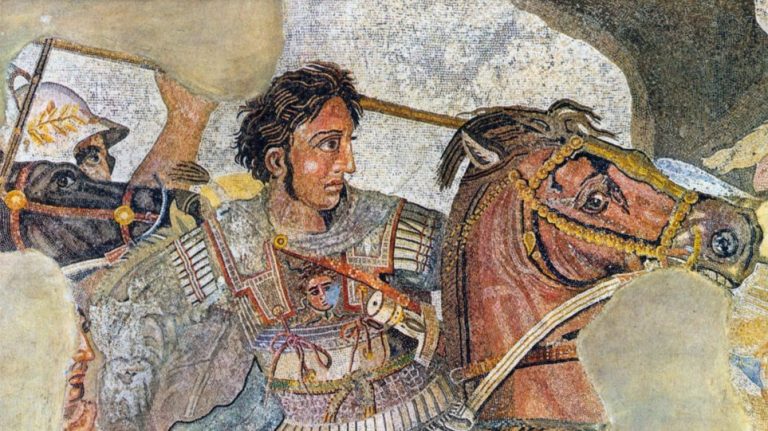The mystery over the death of Alexander the Great may have finally been solved — and his passing was grislier than historians had ever imagined.
The fearsome military genius succumbed to a rare disease that left him paralyzed for six days, gradually robbing him of his ability to move, speak and breathe, claims a new study.
It means the ancient Macedonian ruler was likely still alive while his loyal soldiers prepared his body for burial in 323 BC.
His muscles were paralyzed to the point that doctors couldn’t see he was still breathing, meaning he was pronounced dead nearly a week early.
One of history’s finest warmongers, Alexander the Great established the largest empire the ancient world had ever seen through a series of ferocious military conquests.
At the age of 25, his army overcame overwhelming odds to crush the Persian territories of Asia Minor, Syria and Egypt without suffering a single defeat.
The towering leader died suddenly in Babylon at age 32, and for decades historians have puzzled over what finished him off, with some blaming typhoid, alcoholism or even poison.
Now health scientists in New Zealand think they have the answer: a rare autoimmune disease that destroyed his body from the inside. The findings were published in the Ancient History Bulletin.
more at nypost.com
Ask me anything
Explore related questions





